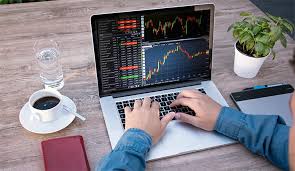
Mastering Forex Trading: Your Complete Course Guide
The forex market, known for its high liquidity and volatility, has become a hotspot for traders worldwide. Whether you’re a newcomer looking to dip your toes into the currency market or an experienced trader aiming to sharpen your skills, a structured forex trading course Online Trading Brokers course can provide the essential knowledge you need. In this article, we will explore the key components of a comprehensive forex trading course and how it can enhance your trading journey.
Understanding the Forex Market
Before diving into trading, it’s crucial to understand what the forex market is. The foreign exchange market is a decentralized marketplace where currencies are traded, involving participants like banks, financial institutions, corporations, and individual traders. With a daily trading volume exceeding $6 trillion, forex trading offers unmatched opportunities but also considerable risks.
The Basics of Currency Pairs
Forex trading revolves around currency pairs, which consist of two currencies. The first currency is the base currency, and the second is the quote currency. For instance, in the EUR/USD pair, the euro is the base currency, and the US dollar is the quote currency. Understanding how these pairs work is foundational for any forex trader.
Understanding Pip and Spread
A pip, or “percentage in point,” is the smallest price movement that a given exchange rate can make based on market convention. The spread, on the other hand, is the difference between the bid price and the ask price of a currency pair. Learning about these terms and their implications on trading costs is crucial for maximizing potential profits.
Educational Components of a Forex Trading Course
A well-structured forex trading course should cover a variety of topics to ensure traders are well-prepared for real market conditions. Here are essential components:

Technical Analysis
Technical analysis involves studying past market data, primarily price and volume, to forecast future price movements. Key tools include charts, indicators, and patterns. A good course should teach you how to read and interpret these elements, which are vital for making informed trading decisions.
Fundamental Analysis
Fundamental analysis focuses on economic indicators and news events that can influence currency values. Understanding how factors like interest rates, inflation rates, and geopolitical events affect the forex market is essential. A forex trading course should help you connect these macroeconomic factors to your trading strategy.
Risk Management
The importance of risk management in trading cannot be overstated. A good course will teach you various risk management techniques, such as setting stop-loss orders, calculating position sizes, and understanding the risk-to-reward ratio. These skills will protect your trading capital and contribute to long-term success.
Creating a Trading Plan
One of the key takeaways from a forex trading course should be the development of a personalized trading plan. This should outline your trading goals, strategies, risk tolerance, and performance evaluation criteria. A well-thought-out trading plan is your roadmap to success and helps maintain discipline in your trading activities.
Psychology of Trading

Trading isn’t just a technical endeavor; it also involves psychological components. Emotions such as fear and greed can significantly impact trading decisions. A robust trading course will address the psychological aspects of trading, helping you develop a mindset that can withstand the ups and downs of the market.
Live Trading Sessions
Practical experience is invaluable in forex trading. Many successful trading courses offer live trading sessions where you can practice your skills in real-time under the guidance of experienced traders. These sessions provide feedback and immediate insights, making your learning experience much more effective.
Utilizing Trading Platforms and Tools
Familiarity with trading platforms is crucial for executing trades effectively. Courses should introduce you to popular platforms such as MetaTrader 4 and 5, explaining how to use their various features and tools for trading analysis. Understanding these platforms will enhance your trading agility and efficiency.
Choosing the Right Forex Course
With numerous forex trading courses available online, choosing the right one can be daunting. Look for courses that offer comprehensive content, experienced instructors, and positive reviews from past participants. Additionally, consider if the course provides access to a community of traders to share insights and experiences.
Conclusion
Enrolling in a forex trading course can be a game-changer for anyone interested in pursuing a career in trading. By arming yourself with the right knowledge and tools, you can navigate the complexities of the forex market with confidence and skill. Remember that trading is a continuous learning journey, and with dedication and the right training, you can achieve your financial goals.
